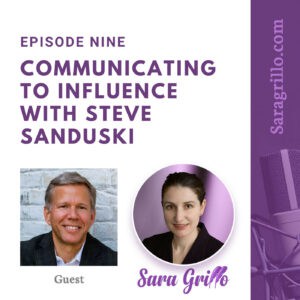Financial advisor fees can be reduced – here are some ways. Don’t get suckered out of your hard-earned money!
But before we get to the blog…
Look, there are alot of schmucks out there hawking crap products disguised as financial advice.
Don’t be fooled!
- Please subscribe to my newsletter to receive updates that raise awareness of consumer financial issues. It will teach you how to avoid shenanigans, crap products, and other scummy practices that are unfortunately common in financial advice.
- I wrote a bunch of consumer advocacy blogs here to protect people from all the BS.
- I’m writing a book about how to find a financial advisor who won’t ruin your life. Join this newsletter to be notified when it is out.
And now let’s get on with it!
How to reduce the fees you pay to a financial advisor
#1
First thing: know what all the fees are. Ask the advisor for a written list of all charges you will be expected to pay, not just to them – but to every single entity involved in servicing you. For example, are there account opening or closing fees charged by the custodian? What types of securities does the advisor typically invest in? What are the expenses associated with those vehicles, and with the transactions made involving them?
You can find this information in the financial advisor’s ADV Part 2, Item 5 “Fees and Compensation”. Visit the IAPD website (https://adviserinfo.sec.gov/) and enter their name.
Get a total picture of all the fees involved, not just the advisor’s fee itself.
#2
Ask yourself if you really need everything the advisor offers. Advisors work with clients different ways. For example, can you make the trades yourself? Can you manage the money yourself, if the advisor provides an initial investment allocation and rebalancing instructions? If so, an advice-only planner may be the right fit.
#3
Try to chart out your needs over time. Many times, after the initial work is done (usually in the first year) there is only minimal maintenance work. You may be better off paying a higher amount in the beginning of the relationship, if the work required if likely to decrease after the initial “clean up” is done.
Some advisors charge on an hourly basis. It may make sense to hire an hourly or flat fee advisor who works on a one-time or project basis rather than paying a “retainer” that automatically renews each month. This way you aren’t overpaying if the work required is dramatically lower after the initial work is completed.
Are they just going to be “monitoring” after the first year? If so, it is worth what they are asking you to chalk up or could it be done in a less expensive way? The advisor is going to try to sell you a relationship in perpetuity – make sure if you are going to agree to that, it’s something you truly need.
#4
Be aware that some payment methods obscure the true cost. Pay attention to how you are actually paying the fee. If your advisor is managing your assets, usually the fee is debited out of your account at the custodian without you having to manually perform the action of paying the bill. This is an ingenious way to obscure the amount you are actually paying.
Some advisors, such as hourly planner or advice only planners, will get paid via check or electronic transfer, instead of just having the money come out of your account (which you may or may not pay that much attention to). Don’t balk at it just because you have to write a check manually which forces you to embrace the full knowledge of the amount you are paying. Look at the actual amount you are paying; don’t overlook what it is actually costing you if your assets are being debited automatically (even though you never had to write the check because your portfolio paid the bill).
#5 Look at minimum of 5 advisors to see what they charge and compare what you are getting for that. There are websites such as NAPFA, fee only network and XYPN that offer advisor search directories. If you don’t understand what each service entails, ask. Make a spreadsheet and compare each one. Don’t just take one referral from a friend at the golf club.
Resources to help you
Here’s what you can do if you want to cut down the amount of fees you pay to a financial advisor.
#1 Financial advisor lists
Here are some list of low cost and transparent advisors. If you have questions about anyone on this list, let me know. Also, please understand that this is not an endorsement of any particular company. Please conduct your own due diligence and come to your own decision. Also, I am under no obligation to update this list and the conditions of service offered by these firms may change over time without being reflected here. I have no formalized business relationship with any of the firms listed on these financial advisor lists.
I can’t say it enough – you have to do your own research. This is not an endorsement of anyone mentioned here, and situations could change and not be reflected here in this blog. Also, there is selection bias inherent in this list. I did not interview all the hundreds of thousands of advisors out there, I conducted research using Google, consulted with my network, and posted on social media. So this is limited to what I had access to given my resources. Again, conduct your own research; this is intended to be a starting point but by no means is it exhaustive or conclusive.
#2 Learn their tricks
Consumer advocacy blogs – In these blogs I talk about the bad things that financial advisors do, so you can learn what to avoid.
#3 Leverage Fiduciary resources and learn what a pure fiduciary is
Institute for the Fiduciary Standard houses a library of Advisor On My Side resources. Check it out.
Read about the six core fiduciary duties.
Protect yourself from the financial services industry!
Let me leave you with this:
#1
If you have any questions as you search for a financial advisors, send me a note. I am sick of consumers getting a raw deal and would be happy to hear your questions.
#2
I have a newsletter entirely devoted to advocacy for the consumer. The goal is to educate people so they can steer clear of the traps the financial services industry sets for them. Please subscribe to my newsletter to receive these updates so you can avoid being taken advantage of by shenanigans.
#3
I’m writing a book about how to find a financial advisor who won’t ruin your life. Join this newsletter to be notified when it is out.
Be safe!
-Sara G





